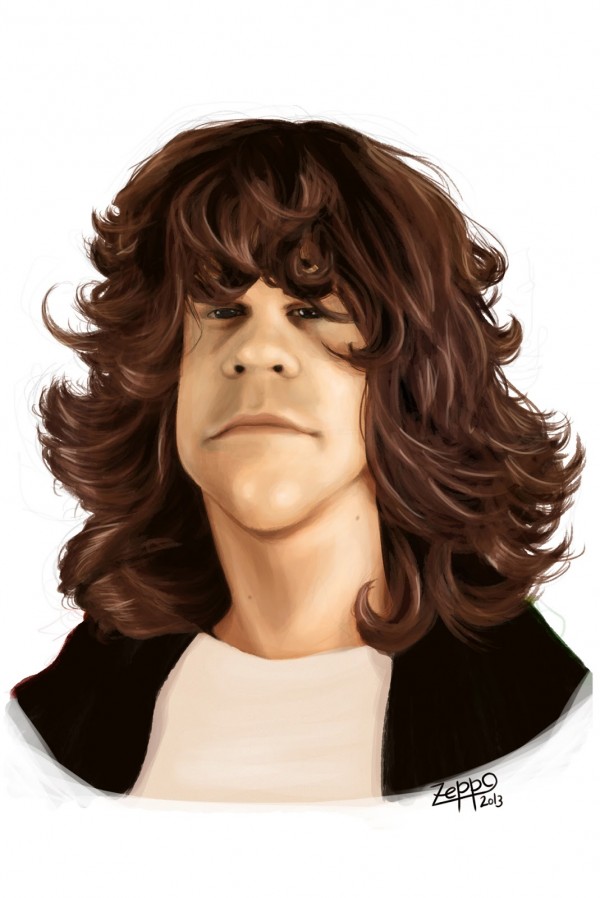Illustration by DANIEL ZEPPO
David Johansen was cool before your grandparents even thought about making your parents — and 40-plus years later he shows no signs of becoming uncool any time soon. He prefigured glam and punk with the cross-dressing garage-squawk of The New York Dolls in the ’70s. He prefigured the age of kitsch and retro-chic with pompadoured lounge lizard Buster Poindexter in the ’80s. And he prefigured the enduring fascination with the fossilized forms of music that prefigured rock n’ roll — what Greil Marcus famously dubbed “the old, weird America” — with the Harry Smiths at the turn of the new century. And for more than 40 years, he’s done all that prefiguring with his trademark sex-panther growl and cat-who-swallowed-the-canary wink-and-grin. He has outlived and outperformed most of his contemporaries. With the exception of guitarist Sylvain Sylvain, he is the last Doll alive and by all outward indicators that status won’t be changing any time soon. He will be appearing with a full band at Underground Arts on Friday, performing music from his days as a New York Doll and his early, pre-Buster solo career. DISCUSSED: Inventing punk without really trying; opening for Pat Benatar at the Allentown Fairgrounds; mapping the place where David Johansen ends and Buster Poindexter begins; what it’s like when Morrissey — who hates everything — is your biggest fan; and questions about a bunch of other things he can’t be bothered to answer.
PHAWKER: I want to start on a personal note. The second rock concert I ever went to in my life was seeing you open for Pat Benatar at the Allentown Fairgrounds circa 1982.
DAVID JOHANSEN: Oh, yeah. I remember going on that tour, yeah.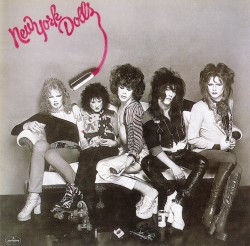
PHAWKER: Opening for Pat Benatar — showbiz can be so cruel. So, you grew up Catholic in Staten Island, your mom was a librarian, dad was an insurance
agent. What do you remember about that time?
DAVID JOHANSEN: I had a lot of fun.
PHAWKER: Your first lead singer gig was in the late 60s with a band called the Vagabond Missionaries. Tell me about them. What did they sound like? Kind of a 60’s garage rock kind of thing?
DAVID JOHANSEN: Yeah, something like that. Something like that.
PHAWKER: I sense that these questions aren’t necessarily engaging you so far.
DAVID JOHANSEN: Where are you getting these questions from anyway?
PHAWKER: From StupidQuestionsForDavidJohansen.com. Where else would I have gotten them?
DAVID JOHANSEN: [laughs]
PHAWKER: Do you remember the first time you met Johnny Thunders?
DAVID JOHANSEN: Uh…no.
PHAWKER: So, the New York Dolls were considered proto-punk, the progenitors of punk rock. The first album was extremely lo-fi, raunchy, sloppy-sounding. No record sounded like that at the time. Where did the idea come from? I mean, how did a major label come to release a record that sounded like that?
DAVID JOHANSEN: Jeez, I don’t know. We just really made it the best record we could make. So,
that’s the way it came out.
PHAWKER: Why do you think the record didn’t connect with a larger audience at the time?
DAVID JOHANSEN: Why? Was it supposed to?
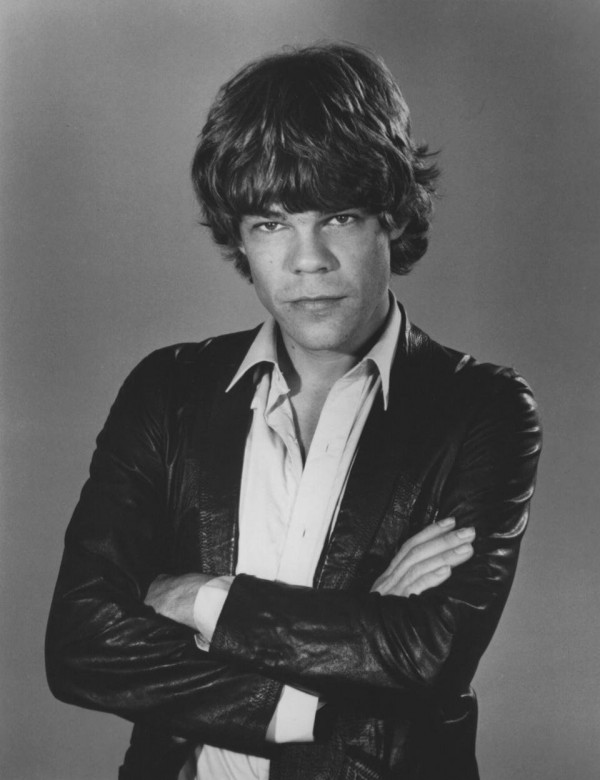 PHAWKER: Well, you’re on Mercury Records, a major label which is in the business of selling records. So yeah, I think it was supposed to connect with a larger audience.
PHAWKER: Well, you’re on Mercury Records, a major label which is in the business of selling records. So yeah, I think it was supposed to connect with a larger audience.
DAVID JOHANSEN: You know, I can’t really tell you that because I don’t even know anything about that. I mean, it’s just a record. It’s like ‘whoever likes it, buys it’. It’s one of those records that…it’s kind of like one of those records for like the cognoscenti. What you have to understand is that when you’re doing something like that, you’re not thinking about things like that, you’re just making a record. You’re not foreseeing how people are going to react to your stuff and mythologize you, you know?
PHAWKER: But people did react to it. The record was not a hit out of the gate, but it’s a classic
record today.
DAVID JOHANSEN: Yeah, I think it did pretty good.
PHAWKER: Is it true that the name of the band came from Sylvain working at a men’s boutique that was across the street from the New York Doll Hospital, a doll repair shop? Is that
correct?
DAVID JOHANSEN: You know what, you should talk to [New York Dolls guitarist] Sylvain [Sylvain] about this stuff because he’s got avery good memory. All this kind of historical stuff? I suck at that.
PHAWKER: What do you want to talk about then?
DAVID JOHANSEN: I don’t know what to say. I suck at it. I just remember playing music and having fun and making records. All I remember is having fun. I don’t think have too many opinions
about it.
PHAWKER: I remember hearing you on Fresh Air. I thought you had quite a bit to say about all of this.
DAVID JOHANSEN: So, why don’t you just listen to that and let’s move onto the world today, as they say.
PHAWKER: Ok. Let’s talk about the world today…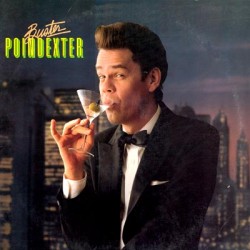
DAVID JOHANSEN: Because this is like writing a book…
PHAWKER: You’re a historical figure, David. People are interested in learning about those times. People are still fascinated by those recordings. You’re coming to town to do The Best of the New York Dolls. I don’t see why these questions would not be appropriate or would not be of interest to readers.
DAVID JOHANSEN: I’m not saying they’re not appropriate. I’m just saying. I’m telling you what I know. I don’t know anything besides what I’m telling you.
PHAWKER: Ok. Let me ask you this. Johnny Thunders, Arthur Kane, Bill Murcia, Jerry Nolan. All deceased. You buried most of the original band members. What’s your secret? Why are you still so thriving and still walking the Earth?
DAVID JOHANSEN: I love to sing. I like so many kinds of music. I love music. It makes me very happy.
PHAWKER: So, I remember you on David Letterman back in the 80s. This was in the Buster Poindexter days. You were on, talking about your hangover remedies, and how you could manage to be out all night partying and still look fresh the next day for a photo shoot. You said your secret was to put Preparation H under your eyes that would get rid of the bags under your eyes. It was like an early form of Botox. Do you remember that?
DAVID JOHANSEN: No. That’s funny.
PHAWKER: Where did the Buster Poindexter concept — the pompadoured lounge singer lothario, kind of like Tony Clifton, but with some talent — where did that come from? How did that evolve?
DAVID JOHANSEN: I guess I was just trying to get some space from myself, or from what people expect from David Johansen. I feel that when I show up people expect a certain kind of music from me. But when I’m Buster Poindexter, I can sing whatever I want to sing and nobody can tell me otherwise.
PHAWKER: True. What is the status of Buster Poindexter these days?
DAVID JOHANSEN: Me and some guys have been doing a lot of Buster Poindexter gigs since
April.
PHAWKER: When you play Underground Arts on Saturday, are you just doing Doll stuff, or are you doing everything from your career?
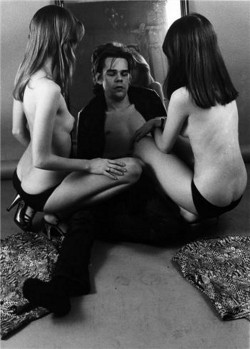 DAVID JOHANSEN: Probably do some Doll songs, and some Johansen songs from my solo records, like the rock band records. Probably won’t do anything from the Harry Smiths.
DAVID JOHANSEN: Probably do some Doll songs, and some Johansen songs from my solo records, like the rock band records. Probably won’t do anything from the Harry Smiths.
PHAWKER: The Dolls are given credit for more or less starting Punk, but they also are…
DAVID JOHANSEN: You’ve got to understand, that certainly wasn’t our intention. You have to understand that when you make music – try and picture this — when you make music, you’re making the music that you hear in your head that you want to put out. Then people start classifying it and making names for it and putting it into a category. So, the message of it is homogenized for the populist consumer culture in which we live. But as a musician, this means nothing. You understand what I’m trying to say?
PHAWKER: Alright. I understand.
DAVID JOHANSEN: People have ‘oh, this is punk’ or whatever. It is not really applicable to the person who is creating it because that’s just kind of like static. You know what I’m saying?
PHAWKER: I understand. I understand that you guys weren’t sitting around going ‘Let’s start something that they’ll call punk in 20 years or whatever’ but let me finish my question though. You guys got the credit —
DAVID JOHANSEN: I mean, I don’t even know what punk is, you know, or what jazz is, you know? Punk, show me different bands that people say ‘oh, that’s a punk band’. But, it’s like they’re running a gamut of every kind of music that you could imagine. So, it’s really just a word that people say when they’re not saying anything. You know what I’m saying? It’s like jazz. Like what’s jazz? You can’t categorize it. What’s rock n roll? You can’t categorize it.
PHAWKER: Ok, so let me finish my question. You guys got the credit for starting punk, whether or not you want it or not, but you are also the reason why Glam Metal happened, why Motley Crue, and Stryper, and W.A.S.P. and Poison and Quiet Riot and a zillion other awful Spandex-and-hairspray bands came around. I just wanted to ask you if you’re willing to apologize for that?
DAVID JOHANSEN: [laughs] That’s funny. I think if you’re an artist you don’t get to pick who you inspire.
PHAWKER: It’s true. Many, many bands over the years have cited the New York Dolls as a primary influence.
DAVID JOHANSEN: Well, that’s good. That’s a good thing.
PHAWKER: You’re one of those bands kind of like the Velvet Underground, as the famous saying goes, 500 people bought their record when it came out but they all started bands.
DAVID JOHANSEN: Aw, yeah. Right.
PHAWKER: Morrissey is a huge fan. He ran the UK fan club for the Dolls…
DAVID JOHANSEN: And what is he? Is he a hair metal or a punk?
PHAWKER: He’s a little bit of both actually. He’s hair punk, I would say. Have you not ever met Morrissey?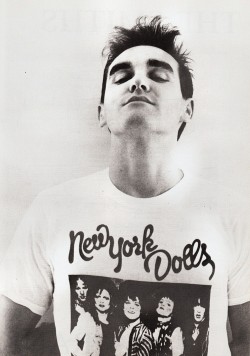
DAVID JOHANSEN: Yeah, I met him. I only heard a couple of his songs though.
PHAWKER: It’s my understanding that he was actually responsible for you guys sort of getting back together around 2004.
DAVID JOHANSEN: That is correct.
PHAWKER: And then you guys wound up making an incredibly strong comeback record in 2006 that, in some ways, as good as anything you guys had ever done back in the early ’70s. I don’t really have a question here, I guess I’m just throwing a compliment out that you guys still ‘got it.’ What about the outrageous clothing and the things like that that you guys were wearing in the early ’70s? Is that just because there was a lot of androgyny was in the air? It was chic at the time? Or was this something that you guys saw was being kind of transgressive, kind of a ‘fuck you’ to macho middle America?
DAVID JOHANSEN: Well, I don’t think we were really concerned about America so much. It was kind of like New York City at that time was a hotbed of revolution and we were like the band of that scene. If you were going to have a dance for the Association of Anarchists and Drag Queens United, you would hire the Dolls to play at the Electric Circus to play at your occasion.
PHAWKER: Were there other bands around that sounded like you guys in the early ’70s — loud, raunchy, proto-punk? Or did you guys stick out like a sore thumb?
DAVID JOHANSEN: There wasn’t any bands around. I think having a band was something thathadn’t occurred to people. We all had a band because we were all such music nuts. You know, we all liked rock n roll music so much, so we all banded together and started making music. But I don’t know if there were a lot of other people who were concerned enough to bother. Most people probably thought that was a fairly frivolous pursuit, especially when there were more pressing things to do, like getting the word out about macrobiotics and whatnot.
PHAWKER: Alright. I guess that’s all the questions I have for you right now.
DAVID JOHANSEN: That’s great, Jonathan. You did a great job.
PHAWKER: It’s not the conversation I had hoped we would have but…
DAVID JOHANSEN: Well, it’s good not to have preconceived notions about that. Being that I am older than you I can pass on a little accrued wisdom. It’s better to just let things flow in its own direction. I’ve always found that when I try to make things happen in a certain way, I am bitterly disappointed.
DAVID JOHANSEN WILL PERFORM FRIDAY NIGHT AT UNDERGROUND ARTS

